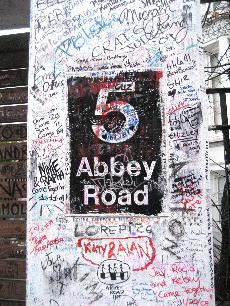Before I arrived in London, I imagined it as a sort of sacred sanctuary, a haven for those seeking a life filled with literature, theater, art, and tea. More than anything, I envisaged the rich diversity of people across cultures thriving together in this European metropolis. All of these remain true, except one. As in the United States, there seems to be a palpable tension and even fear of Islam.
With the recent Swiss ban on minarets and the debates surrounding a woman’s right to wear the burqa in France, the growing presence of Islam in Europe is undoubtedly more pronounced and highly debated. Throughout the European continent, fears and stereotypes persist of a highly aggressive and fundamentalist Islam, one that links all Muslims to terrorism.
Though this distorted image of Islam prevails in London, real threats have struck the U.K. and left scars comparable to the United States’s 9/11 terrorist attacks.
While Great Britain faced its fair share of terrorist plots and attacks, the most notable remain the July 7, 2005, attacks on the London transport system, which killed 52 and injured more than 700.
Yes, unspeakable horror was caused by extremist groups, but the greater threat lies in mislabeling the thousands upon thousands of Muslims living in London as terrorists.
As in the United States, the issue at hand should be separating the true threats from those of artificial contrivance.
Fear and apprehension of future violence between the U.K. and the Muslim world resulted in the founding of Prevent, a government anti-extremism program. While the government insists Prevent is simply a marriage of intelligence services and a hefty police force, Muslims and civil liberties groups within the London community claim that the government is using this to spy on innocent Muslims.
Londoners, Muslims and non-Muslims alike, heavily criticized this program and continue to do so. The main concern is that the line between collecting information on potential violent extremists and on the general Muslim community will inevitably blur.
I never imagined that such discrimination and prejudice could exist in a city recognized as a hub of cultural diversity.
This past week I visited the London Central Mosque, London’s largest mosque, for a second time. Even the notorious grey of the London skyline could not obstruct the glow of the golden dome situated atop the ornate structure. I followed the cascading hues of blue, green and gold along the entrance, and I felt a keen appreciation for its beauty as I wrapped my scarf around my head.
My guide, a devoted member of the mosque and an acclaimed scientist, spoke in a steady, sad voice about the need to reform the violent injustices attached to Islam. Smiling, he blessed Allah and described the love, peace and justice embedded within the Koran.
After the tour, the imam of the mosque recited a section of the Koran from memory. Everyone in the great hall fell silent. His resounding voice echoed throughout the great hall as I stood there, speechless and overwhelmed by the beauty of the scene.
I find it terribly sad but illuminating that such misconceptions about Islam exist in London. To romanticize a city as I did was naive, but no great city is without fault. London is imperfect but beauty can still be found amidst these imperfections.

